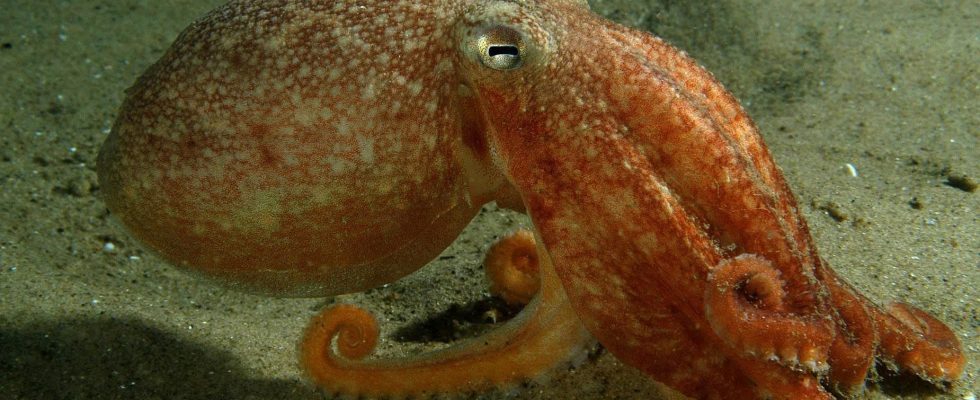full screen
Next
An eight-armed octopus photographed in the North Sea. Archive image.
1 / 2Photo: Sebastian Valanko/Greenpeace/TT
Mammals, birds and reptiles dream when they sleep, and we usually associate that type of behavior with a higher mental capacity. But who would have expected that even octopuses dream?
It is in and of itself well known that octopuses have very large brains, and that they find it easy to learn different things and also seem to have a good memory. At the same time, they can be experienced as almost alien with their strange bodies and tentacles.
They resemble no other organisms, are most closely related to clams, snails and other molluscs and do not evoke the same emotions in us as birds and mammals do. Therefore, it may come as a surprise that they seem to dream in the same way as humans.
Two studies provide evidence that they alternate between two stages during sleep – a relaxed state and another, more active, similar to so-called REM sleep in mammals. REM stands for “rapid eye movement”, the rapid eye movements we make when we dream.
Relive events
The one study, which has recently been published in Nature, has been carried out by researchers at the University of Okinawa in Japan in collaboration with the University of Washington in Seattle, USA. They examined the brain activity during sleep in a species of eight-armed octopus, Octopus laqueus, and at the same time noted skin changes in the animals.
Octopuses are known to express different states of mind with their skin. When awake, they can switch between different patterns and colors – to camouflage themselves, scare off predators, or communicate with conspecifics. Now it turned out that their skin switches between the same type of patterns and colors even when they sleep, and at the same time their arms and eyes twitch.
The researchers interpret this as a type of REM sleep. They seem to relive certain events that they witnessed while awake – something we recognize from our own dreams.
In such cases, what we know about the evolutionary history of life must be partially rewritten. The new findings clearly point to the fact that not only vertebrates dream, but also such distantly related animals as octopuses, which is strange. Their brains are indeed large, but have a completely different structure than the brains of vertebrates. Yet they seem to dream in the same way as cats, parrots and humans.
Perhaps it is the case that deep sleep occurs more or less automatically when the mental capacity reaches a certain level – regardless of what the brain looks like.
Nightmares
An alternative is that deep sleep occurs in more organisms than we can imagine. All animals sleep, even such simple creatures as fungi, and perhaps more of them dream.
Possibly they also have nightmares. In a smaller study in the online science journal BioRxiv, researchers at Rockefeller University in New York report how Costello, an eight-armed octopus in the university’s aquarium, appeared to recall horrific experiences during sleep.
First the pattern and colors of the skin changed, then Costello wrapped his arms around his body, began spraying ink, and finally attacked the aquarium’s filter system. According to the researchers, it looked as if he was trying to kill the apparatus. The behavior can be explained in other ways – it could have been convulsions – but the most likely thing is that it was a nightmare.
In other words, octopuses can be said to be more complex than most people thought. Even more strange is the fact that they are so extremely short-lived. Eight-armed octopuses of the species Octopus vulgaris only live in one to two. What’s the point of getting a big brain and learning a lot of things, only to die prematurely? No one has been able to give an answer.
FACT Octopuses
The cephalopods, class Cephalopoda, belong to the mollusks or molluscs. They include approximately 900 living species. The majority of these are divided into two main groups, eight-armed and ten-armed octopuses.
All are marine and the distribution includes all the world’s oceans. The body is round or oblong. The mouth sits at the front end and is surrounded by eight or ten tentacles. The eyes are large and function in much the same way as in vertebrates – but have evolved independently of them. A dark liquid, similar to ink, can be ejected from a special organ when the octopus wants to escape from enemies.
Source: NE, CephBase
Read more
